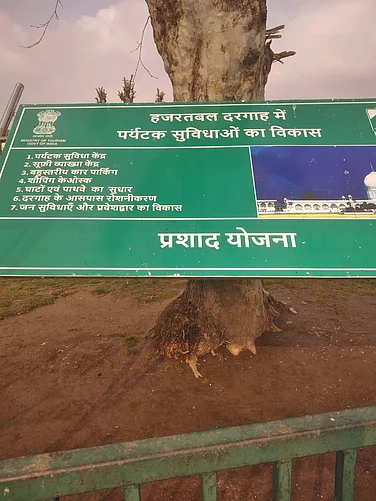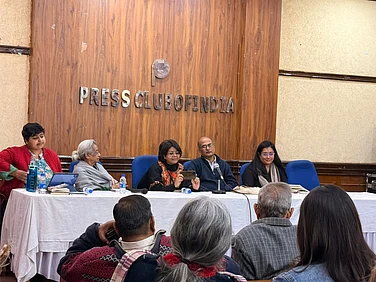The anniversary of the birth of Ali ibn Talib was commemorated the world over a few days ago. Ali was the cousin and son-in-law of the Prophet. Ibn Muljam, a member of the dissenting Kharajite faction, fatally injured him while Ali was offering morning prayers. Despite his mortal wounds, Ali immediately asked for his assassin to not be manhandled and then stated that if he survived he would have the right to forgive his assassin but if he died and people decided to kill Ibn Muljam, they should not mutilate him. He then called his sons Hasan and Hussain and said to them that "if they forgive him [ibn Muljam] it would be nearer to piety." This is the example left by a man who to this day is a figure who is revered by many people, regardless of religion or denomination, as well as of course by all Muslims. Nowadays the murder of Ali, who was Caliph at the time and whose position was akin to that of a head of state nowadays, would be dubbed a terrorist attack. So what then differentiates murder from terrorism?
This article is about two recent murders. One has been occupying the airwaves all over the world whereas the other has met with a conspiracy of silence. Both are grotesque, sadistic and vile examples of the levels to which individuals as well as institutions can stoop in senselessly taking a life. One was the murder of a Muslim and the other was a murder by Muslims. However, there is one key difference in both the scenarios and that is of the language used to describe the deaths. The former is described as the custodial death in India of Khalid Mujahid, a man who had been arrested on terrorism charges but had been found not guilty according to the official report of the Nimesh Commission. Even as the government had moved to withdraw its cases against Mujahid, he ‘inexplicably’ died in police custody.
The second murder was ten thousand miles away in Woolwich, England, of a soldier in civilian clothes by British Nigerian converts to Islam. Enquiries into the motivation of the killers and the implications of their attack might, in time, provide answers to the many questions that are being raised about how and why this attack happened. However, what is important is that right from the time when news became public, the phrase “terror attack” was used to describe the murder.
The question arises as to what makes the first murder just a murder, if that, and the second a terrorist attack? In the immediate aftermath of the Woolwich murder, politicians and media started to refer to the event as a terrorist attack and prominent media personalities and ‘self-appointed political pundits’ started justifying this by pointing to the fact that the murderers had used ‘Al-Qaeda’ type language, the implication being that the religious language used by the killers must of course be seen as them being part of a wider ‘Islamist’ terrorist network.
Why were the ravings not seen as the sociopathic and psychotic ravings of disaffected, maladjusted killers vaguely motivated by religion and who knows what else? Some time ago when Anders Breivik killed a number of people in a youth camp in Oslo his actions were described as those of a lone madman. He too, like the Woolwich murderers, claimed that his attack was motivated by religion and desire to protect it. Investigations established his links to far-right Christian and white-supremacy groups. However, what he carried out was not labelled a terrorist attack. White people, Christians and the Church were not called upon to disown him or to condemn him and the 77 people killed by Breivik were not described as being victims of a Christian zealot.
Today, using the label of 'terrorist' rather than 'murderer' carries two implications. The first is legal because labelling an incident a terrorist act means that it can be linked to the wider network of the war on ‘terror.’ Consequently various laws can be invoked that deal specifically with terrorist incidences. Secondly, and as importantly, it serves propaganda purposes, ironically both for the state and for the terrorist, because immediately a sense of hysteria is created and the ‘othering’ of the culprit instantly occurs whereby the possibility of their being from ‘within’ is excluded. In one deft move the label automatically seeks to look for culpability outside, seeks to politicise the issue, and at the same time focuses attention away from a host of other issues that need to be examined. One result of this is the almost implicit denial that the ‘terrorist’ could have emerged from ‘within.’ Why focus on his being Muslim and not British? Non-Muslim British people have committed equally heinous crimes. Recall the drunken soldier who stabbed a 10 year old child in Afghanistan a few years ago. A mere ‘murder’ of course does not offer the chances of such distraction.
Khalid Mujahid died while he was in the custody of the state. Although his death was illegal, the words that are used cautiously, are extra-judicial and death rather than murder. Khalid Mujahid’s killers were faceless representatives of a state. And states claim the absolute right to violence so even when their violence is illegal it is not deemed so because of the state’s ability to invoke laws to do with security and national interest. Were the killers of Khalid Mujahid terrorists? Furthermore, the local bar association passed a resolution that terror suspects should not be represented by their members and then, along with thugs patronised by various political organisations, they hounded and beat up the lawyers, including a Hindu, who represented Mujahid. Surely no one can deny that they were trying to terrorise the lawyers into submission?
The fact is that increasingly the word terrorist seems to be used as a euphemism for Muslim. While insisting on using the word terrorist to describe attacks, David Cameron nonetheless also passionately stated that Islam was a religion of peace and harmony and therefore sought to buffer the implication of using the word. By seeing the need to defend the nature of Islam, Cameron and others betray themselves because they simultaneously admit their tacit assumption that in their minds terror is largely inextricably linked to Muslims. It seems then that the only difference between terrorism and murder is contingent on whether the culprit is Muslim or whether the victim is Muslim.
As Muslims condemn this latest insanity, it is important to state that there are no Muslim leaders and nor are there Muslim spokespersons since there is no official ‘church’ in Islam. There are scholars and learned men and women but they are rarely called upon to express their opinion on such matters. In any case, Islam is not represented by the actions of Muslims and neither does it seek to only engage with Muslims. The first chapter of the Quran refers to God as Rabb il-aalameen—the Lord of all the worlds and not just of a particular religious, ethinic or racial group. The day of the Woolwich murder, the Muslim present at the scene was not the killer but the scout leader, Ingrid Loyau-Kennett, who in trying to reason with the attackers implicitly followed the Quranic verse that speaks of saving a life as being the equivalent of saving all of humanity.
Ali Khan Mahmudabad is a PhD student in History at the University of Cambridge who writes a fortnightly column for the Urdu Daily Inqilab


























